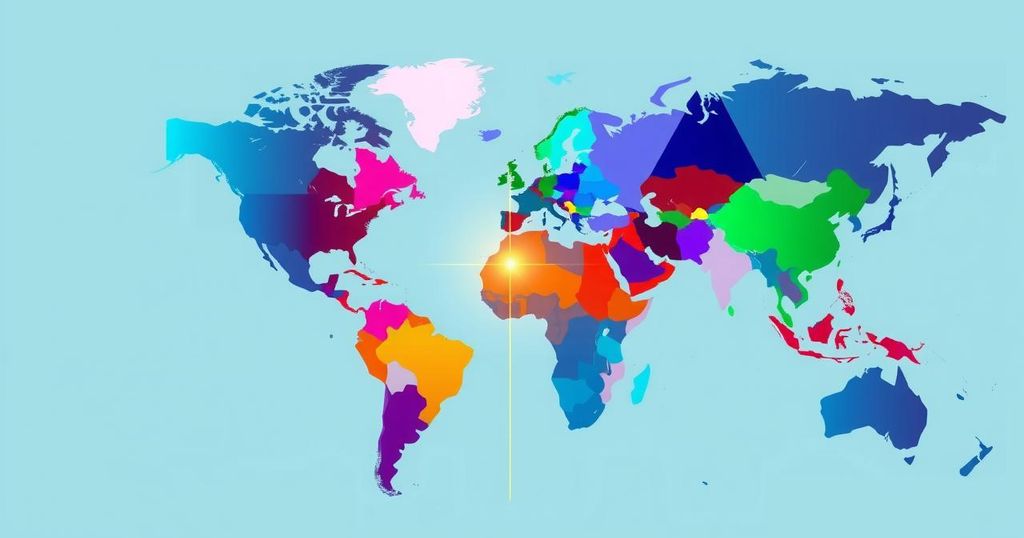Zimbabwe aims to join BRICS, aspiring to enhance its global economic position but faces significant obstacles, including governance issues and economic mismanagement. The government believes BRICS membership could provide alternative financial resources and trade opportunities, but skepticism arises regarding actual benefits due to historical challenges. Without addressing internal economic reforms and stability, Zimbabwe’s membership ambitions may remain politically symbolic, failing to yield substantial improvement.
Zimbabwe’s aspiration to join BRICS, an economic alliance of Brazil, Russia, India, China, and South Africa, raises important inquiries regarding its economic direction and governance. Foreign Minister Amon Murwira’s visit to Russia and remarks on BRICS membership indicate Zimbabwe’s inclination to align with emerging global powers to enhance trade and investment while circumventing Western financial structures.
The Zimbabwean government posits that BRICS represents an economic paradigm alternative to Western-dominated systems. BRICS originated as a coalition of emerging economies aiming to diminish Western influence on global finance, including institutions like the IMF and World Bank. The New Development Bank from BRICS could provide funding for infrastructure without typical Western conditions, potentially aiding Zimbabwe’s access to financial resources.
However, Zimbabwe’s challenging economic and governance landscape raises doubts about the advantages of BRICS membership. The nation struggles with entrenched issues such as policy inconsistency, corruption, and mismanagement, which hinder its ability to attract investment. Thus, even if it gains BRICS membership, substantial financial assistance is not assured, particularly given China’s cautious lending following Zimbabwe’s poor repayment history.
Zimbabwe does maintain robust trade connections with BRICS countries like China, South Africa, and Russia, yet joining BRICS won’t necessarily unlock new trade avenues or address significant economic challenges. The crucial concern remains Zimbabwe’s inability to produce competitive goods and services, exacerbated by years of economic mismanagement and inadequate investments in productive sectors.
A lack of political and economic stability further complicates Zimbabwe’s BRICS ambitions. Although BRICS encompasses emerging economies with varying influences, countries with stronger financial systems, like South Africa, have seen limited transformative benefits from membership. Therefore, it’s improbable that Zimbabwe, which has a weaker economy, would gain markedly from joining.
Furthermore, BRICS membership doesn’t automatically serve the interests of current members. Zimbabwe’s minuscule GDP comparison to existing BRICS nations might categorize it as a liability, potentially undermining BRICS’ credibility as a coalition of burgeoning economic powers. Inclusion might be perceived as merely political symbolism rather than yielding tangible economic benefits.
While Zimbabwe has considerable mineral resources, their effective management is critical for sustainable growth. The governance record shows inefficiencies, with corruption and policy inconsistencies thwarting potential economic advancement. BRICS countries already have resource-rich alternatives offering more stable investment climates, making Zimbabwe less appealing.
In summary, Zimbabwe’s pursuit of BRICS membership reflects its desire for economic transformation and alternative partnerships but is overshadowed by profound governance and economic challenges. Genuine progress hinges on the country’s ability to enact vital reforms, counter corruption, and boost investor confidence—rather than simply achieving membership in an international bloc. Until these foundational issues are addressed, Zimbabwe is likely to remain disconnected from meaningful global economic expansion, regardless of its BRICS status.
Original Source: www.thezimbabwean.co






